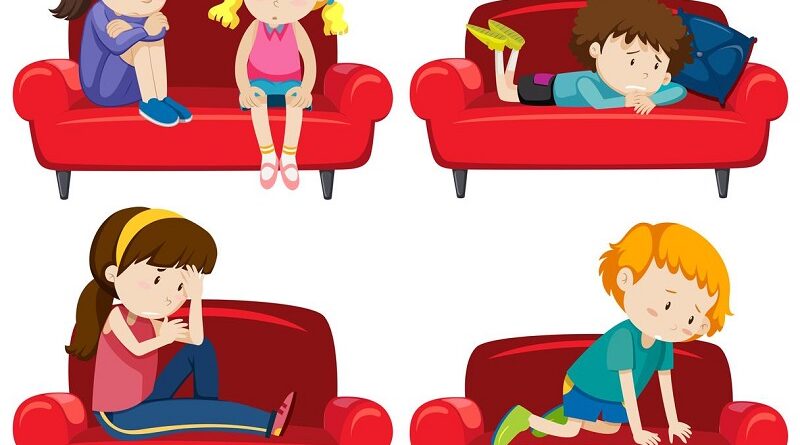Depression in Children and Teens
Introduction
It’s typical for kids and teenagers to experience depressive episodes. Kids may experience grief or intense sadness when they go through a challenging situation, like losing a loved one, for instance. Even when engaging in activities they often find enjoyable, they could temporarily be unable to feel cheerful. However, it is common for grief to fade with time.
Depression is not the same as grief.
After a traumatic experience, depression is a mood condition that makes sorrow and related symptoms worse or stay longer than usual. Depression can also happen in the absence of a trigger. Symptoms of depression in children, which may include sorrow, may be present every day.
It’s possible that kids and teenagers don’t always know how to express their emotions or may want to avoid doing so. For example, older kids and teenagers may try to suppress their emotions so as not to annoy others. There are certain typical depression symptoms, nevertheless, that you could observe. Although any of these symptoms can appear in kids who are not sad, when they do so frequently, they raise a red flag for depression.
The most common signs of depression in children & teens
Seems to be in a worse mood than normal, acting more depressed and irritated than usual.
- No longer takes pleasure in past pleasurable activities
- Spend less time with friends
- Sleeping more than normal, or having difficulty sleeping or staying asleep
- More difficulty concentrating or choosing
- Failing or struggling in school
- A significant shift in diet or weight, up or down
- Less talking and eye contact than normal
- Using media more frequently
- Has less vigor or drive than normal, especially for easy chores
- More frequently cries or expresses sadness, worthlessness, or guilt over things
- Not giving a damn or having optimism for the future
- Not caring about beauty or personal grooming
How common is depression in young people?
One of the most prevalent diseases is depression, and rates among kids and teenagers have been going up recently. Young children’s depression is quite alarming and can have more severe repercussions.
Different types of depression
· Major depressive disorder
When at least five depressed symptoms persist for more than two weeks, on the majority of days, a doctor or another qualified mental health practitioner diagnoses severe depressive disorder. All children with major depressive illness typically struggle to manage daily life, regardless of how mild, moderate, or severe their condition is.
· Persistent depressive disorder
Children who experience this sort of depression may be able to control their actions since it is not as severe. They aren’t at their best, though, and frequently feel depressed. Symptoms of persistent depressive illness are often diagnosed when they continue for more than a year. A severe depressive episode may occur simultaneously in a kid with chronic depressive illness.
What can I do if my child has depression
· Talking with your child
It’s critical to have frank conversations about your child’s feelings with them. Encourage them to express their feelings by patiently listening. Children and teenagers frequently avoid talking about their feelings, but if you ask them directly, they could answer truthfully. Regardless of what your child claims, consult a doctor if you observe depressive symptoms for more than two weeks.
· Getting help
The Child Psychologist for your child can assist identify whether or not your youngster has depression. They have particular surveys and methods for age-appropriate discussions on sorrow with kids and teenagers. Due to the fact that suicide is currently the biggest cause of mortality for teens, many doctors actually examine patients for depression every year from the age of 12 to 21.
· Supporting your child
Although depression therapy is effective, it may take a few weeks. When they don’t feel better straight immediately, your youngster could become disheartened. Make sure they follow the treatment schedule, go to counseling, and take medications as instructed. There are things you can do at home to help them in the interim:
- Become informed, as well as other caregivers and family members. A youngster experiencing depression is not inventing symptoms.
- Depression manifests itself as traits like anger or laziness.
- Inform your youngster that feeling hopeless is a sign of depression and does not accurately reflect reality.
- Instead of concentrating on areas where your child needs to improve, pay attention to their strengths and verbally praise them.
- Help your youngster adopt a fresh, more optimistic perspective on issues.
With play therapy and art therapy, you may help your youngster unwind. Encourage them to obtain enough rest, exercise, and good diet, all of which can improve mood.
Limit your time spent on “social” screens, even though it might be beneficial. Texting or using social media to communicate isn’t a replacement for spending time with friends or family in person; in fact, it may make your youngster feel more alone.
Safety planning & suicide prevention
If kids experience depression, go the additional mile to create a secure environment in your house. Remove firearms and other weapons, as well as drugs, alcohol, and dangerous home chemicals. If you are unable to remove these objects, store them securely
Other actions
- Recognizing the triggers and warning indications.
- Your youngster should list the ideas or circumstances that typically cause them to consider suicide.
- They can also make a list of actions they can take to make themselves feel better when they are depressed or contemplating suicide.
- Make a list of the names and phone numbers of persons who can assist your kid if they are under stress or exhibiting the symptoms and have them handy.
Conclusion
If you have any queries or worries regarding your child’s mental health, don’t be afraid to speak to a Child psychologist. You can consult TalktoAngel; they have highly qualified Child Counsellor that help in eliminating and treating depression and anxiety from child and thus helping in proper development of the child and their future.



